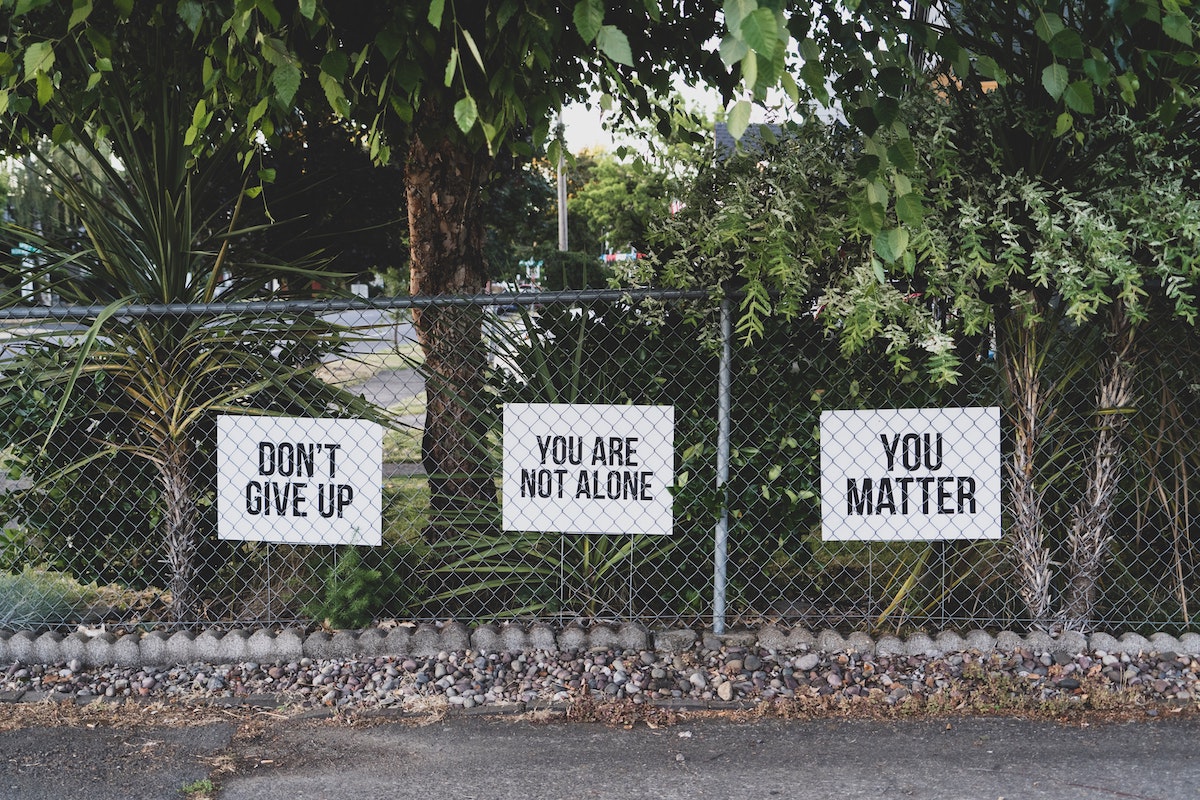1 in 5.
1 in 5. That’s the number of Americans who have a diagnosable mental illness right now. As you’re reading this article, friends, colleagues, and total strangers are dealing with the symptoms associated with anxiety, depression, and myriad other disorders. Many of them have experienced traumatic events at some point in their lives. It’s impossible to tell someone’s mental health from a glance.
1 in 5 – 20% – is anything but a small amount. On average, people in the U.S. spend 20% of their day watching television. 20% of dogs are adopted through friends or relatives. 20% of college students use Snapchat. These numbers are enough to indicate powerful trends in a group’s priorities and well-being. So why is mental illness such a hush-hush topic?
The answer is the stigma and discrimination surrounding mental health in America.
Stigma is when someone sees you differently – in a negative light – because of a mental illness. Discrimination is when you’re treated differently because of it. Humans are social creatures, and our group dynamics can be extremely influential. Social stigma and discrimination often make mental health problems worse and stop people from accessing the help that they need. For many, the only way to learn more and seek professional help is to perform a quiet, confidential search on the internet.
At Webconsuls, we hope to make mental health care available by promoting the services of accredited, evidence-based treatment centers from all corners of the United States.
“Do I Have Depression?”
Life insurance agency TermLife2Go used Google Trends to determine which mental health symptoms Americans were searching most frequently on a state-by-state basis. They found Washingtonians looking into internet addictions, Louisianans Googling postpartum depression, and West Virginians worried about mood swings. Many of these symptoms – particularly California’s concern about intimacy issues and Tennessee’s searches for low libido – are considered too taboo to be discussed with others.
In another study, researchers found that in the United Kingdom, someone Googles “depression” every two seconds.
For the search-minded among us, these trends probably come as no surprise. Google is the first place that younger people turn to for any type of information, whether it’s a niche sports stat or celebrity gossip. It stands to reason that we’d also find it natural to consult a search engine about concerning health issues, especially since unlike doctors, Google is available 24/7. However, the truth is probably more complex than that.
The perceived stigma around mental illness cannot be overstated. Mental health challenges are more complicated than most people realize; while they’re increasingly common, even the most confident individuals balk at the idea of widespread knowledge of their mental illness.
Dr. Jeanette Downie, Deputy Medical Director for the Priory Group, says, “I get some people (fairly high powered business people or people who are well known) who are terrified of people finding out and feel that they have absolutely ‘failed’ by being ill, and they often wait until they are really unwell before they come for help. People simply wouldn’t feel the same about a physical illness, like a heart condition.”
Mental Health Month was created to address this exact phenomenon.
About Mental Health Month
Beginning in the 1940s, Mental Health America and other groups began to observe Mental Health Month each May. By holding educational seminars, hosting events, and sharing resources to social media, this observation has spread throughout the United States. Key mental health services, such as screenings and informative programming, are provided each year. Ultimately, the goals of Mental Health Month are to educate the public, assist individuals in accessing care, and to dismantle the stigma surrounding mental illness in America.
Mental Health SEO: Ensuring Good Organizations Rise to the Top
The sheer volume of searches for mental health concerns speaks for itself. However, it comes with a sense of social responsibility – what happens if someone is directed to a fraudulent treatment center, or a scammy directory in which companies pay for referrals? At Webconsuls, we have made it our mission to help legitimate, accredited organizations to break through this noise. In doing so, we hope that those in need of help will be able to access high quality care.
Today, any drug and alcohol addiction treatment centers wishing to advertise on Google, Bing, or Facebook must achieve LegitScript certification. In order to gain this credential, a center must be properly licensed, have proof of a physical location, present policies demonstrating a commitment to best practices, and submit to a background check for all employees – among other requirements. We guide eligible companies through this process, helping them to reach those in need of treatment. In turn, fly-by-night organizations drop in ranking, preventing vulnerable people from falling victim to a scam.
When you’re seeking help for mental illness, it’s essential that you’re able to access factual information and evidence-based care. We’re here to help you along the way.
Webconsuls is a full-service digital marketing agency with offices in Nashville, TN and Los Angeles, CA.



